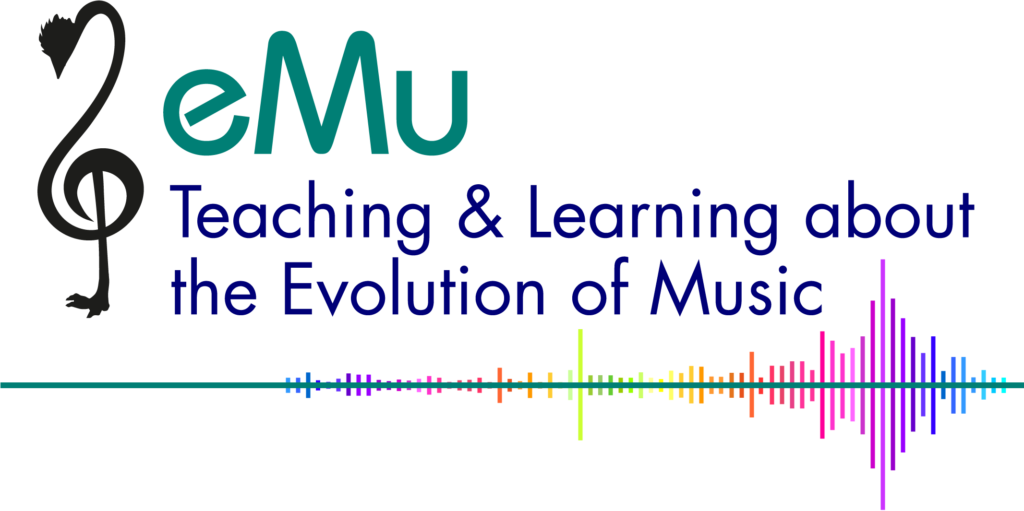
Music is a remarkable feature of humanity.
It is a deeply meaningful component of the everyday lives of many students around the world, and yet, they are rarely afforded the opportunity to learn the science behind this complex cultural phenomenon.
eMu is an educational research and development initiative to advance teaching and learning about the evolution of music as an interdisciplinary theme in general education. We aim to empower students and teachers to engage with the latest advances in evolutionary musicology.
This is a collabortive endeavor to support the curation and creation of an accessible ecosystem of resources and project ideas that can drive these innovations. Join us!
We welcome engagement from secondary, undergraduate, and graduate students, as well as educators, education researchers, and musicologists interested in engaging in educational design research around the topics of evolutionary musicology.
Student Researchers
Education Researchers
Educators
Musicologists
Project Aims
- To empower networked improvement communities of scientists, educators, and students, interested in advancing opportunities for teaching and learning about the evolution of music
- To advance a basic understanding of student conceptions, across cultures and development, relevant to teaching and learning about the evolution of music
- To advance educational design principles and guidance for teaching and learning about the evolution of music
- To develop and organize a collection of Open Education Resources (OERs) for teaching and learning about the evolution of music
- To facilitate coordinated student thesis projects on student conceptions and educational design improvements for the OER collection
The Science of Evolutionary Musicology
Scientists have long debated the origins of human musicality, which also begs the question of the functions of music in the societies of our ancient ancestors. While many questions remain, emerging perspectives suggest that, rather than being a side effect of other aspects of our evolutionary history, participatory music-making may have been selected for by virtue of its role in the social bonding of group members.
We didn’t simply evolve our capacities for music through random genetic mutations. Rather, it appears that music has likely emerged through a co-evolutionary dynamic in which the very act of engaging in participatory musicality, and the resulting social benefits it brought, may have driven selection pressures that positively shaped our further capacities for the diversity of music we find in our world today.
All known human cultures engage in some form of music-making and dancing. Cultural musical diversity is as diverse as humanity itself. Understanding the origins and cultural evolutionary dynamics of modern music diversity offers a fascinating window into music as we know it, and the foundations of cultural change more broadly.
Music shapes our individual and social identities. It alters and regulates our moods and emotions. Lyrical storytelling propels our imagination and helps us reflect on our common humanity. Understanding the evolving functions of music in societies past and present gives us a unique perspective on this most meaningful of cultural characteristics. What is the role of music in the wellbeing and sustainable development of our species today and in the future?
Contact Dustin Eirdosh to discuss thesis and project possibilities.
Examples of perspectives from evolutionary musicology
Reflecting on the function of music in our everyday lives
How does watching this video make you feel? How do you think the people on the train on that Monday morning felt? How might this event have changed their day, their mood, behaviors, or attitudes towards others? What motivated the people who initiated this sing-along event?
What is the role of music in this situation, or of singing together with others, or of watching and listening to a group of people singing this song?
Here is a short article about the event and the idea behind this movement: https://inspiralight.wordpress.com/2015/07/21/the-story-behind-the-train-passengers-singing-over-the-rainbow/
“Do you love me, now that I can dance?”
How does watching this video make you feel?
Do these robots seem threatening, or fun to be around? Why?

